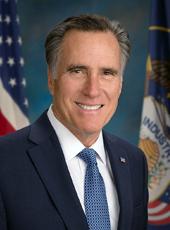"Reinforcing Alliance's Military Might Is Vital"
By Mitt Romney
The Chicago Tribune
May 19, 2012
http://www.chicagotribune.com
NATO has kept the peace in Europe for more than six decades. But today, the alliance is at a crossroads. It is time to speak candidly about the challenges facing the United States and our allies and how to rise to them.
In a post-Cold War world, territorial defense of Europe is no longer NATO's one overriding mission. Instead, the alliance has evolved to uphold security interests in distant theaters, as in Afghanistan and Libya. Yet through all the changes to the global landscape, two things have remained constant about the alliance. For it to succeed, it requires strong American leadership. And it also requires that member states carry their own weight.
In recent years, neither requirement has been sufficiently met.
For decades, many European nations have exchanged investments in defense capability for ever more generous welfare states. The fiscal crisis afflicting Europe is placing even greater constraints on resources available for defense.
We are at a point where only three of the 28 NATO member nations are meeting their pledge to spend a minimum 2 percent of gross domestic product on defense. Robert Gates, defense secretary under President George W. Bush and President Barack Obama, used one of his parting addresses to warn of the "collective military irrelevance" that would result if NATO's members continue to shortchange defense.
While military underinvestment is an old problem for NATO, a lack of American leadership on the issue is an alarming new development. Instead of working to strengthen NATO, the Obama administration has taken actions that will only undermine the alliance.
Last year, President Obama signed into law a budget scheme that threatens to saddle the U.S. military with nearly $1 trillion in cuts over the next 10 years. President Obama's own defense secretary, Leon Panetta, has called cuts of this magnitude "devastating" to our national security. Gen. Martin Dempsey, chairman of the Joint Chiefs of Staff, has plainly said that such a reduction means "we would not any longer be a global power." Despite these warnings, the Obama administration has pledged to veto an attempt to replace these cuts with savings in other areas.
This is reckless. We have a military inventory composed of weapons designed 40 to 50 years ago. The average age of our tanker aircraft is 47 years, of strategic bombers 34 years. Our Air Force, which had 82 fighter squadrons at the end of the Cold War, has been reduced to 39 today. The U.S. Navy, at 285 ships, is at levels not seen since 1916. Should our air, naval and ground forces continue to age and shrink, it will place the interests of the U.S. and our friends and allies at risk.
With the United States on a path to a hollow military, we are hardly in a position to exercise leadership in persuading our allies to spend more on security. And in fact the Obama administration has failed to exercise such leadership. Quite the contrary; a multiplier effect has set in: The administration's irresponsible defense cuts are clearing the way for our partners to do even less.
An alliance not undergirded by military strength and U.S. leadership may soon become an alliance in name only.
At the same time that President Obama has been weakening our military, he has sent the message — intentionally or not — that the worth of NATO has diminished in America's eyes.
In 2009, the Obama administration stunned two NATO allies — Poland and the Czech Republic — with a surprise withdrawal from an agreement to station missile defense sites on their territories, an agreement they signed in the face of Russian threats. Two of our most valuable partners were treated shabbily, the cause of missile defense was set back, and the Russians achieved a prime security objective without having to make meaningful concessions in return. And President Obama recently promised Russian leaders even more "flexibility" on missile defense if they give him "space" before his "last election."
At this moment of both opportunities and perils — an Iranian regime with nuclear ambitions, an unpredictable North Korea, a revanchist Russia, a China spending furiously on its own military, to name but a few of the major challenges looming before us — the NATO alliance must retain the capacity to act.
As president, I will work closely with our partners to bolster the alliance. In that effort, words are not enough.
I will reverse Obama-era military cuts. I will not allow runaway entitlement spending to swallow the defense budget as has happened in Europe and as President Obama is now allowing here.
I will work with the Europeans to advance interoperability of equipment, and a more rational division of labor among national forces to increase their military potential at a moment when the continent is under severe financial strain. And I will exercise leadership on missile defense, cyber capability, energy security and sufficiently mobile forces to make sure that there is never any doubt that the alliance can meet its collective defense obligations.
We will hear many fine words hailing NATO's past successes at the summit this weekend. And that is only right. But as we look to the challenges ahead, we should not fail to heed the sober lesson that motivated NATO's founding: Aggression is easier to deter than defeat.
Formed in the aftermath of a terrible and costly war, NATO is a testament to the fact that the price of weakness is always far greater than the price of strength. That is a lesson I hope the leaders assembled in Chicago take to heart.
Mitt Romney, Romney Campaign Press Release - Reinforcing Alliance's Military Might Is Vital Online by Gerhard Peters and John T. Woolley, The American Presidency Project https://www.presidency.ucsb.edu/node/301416

